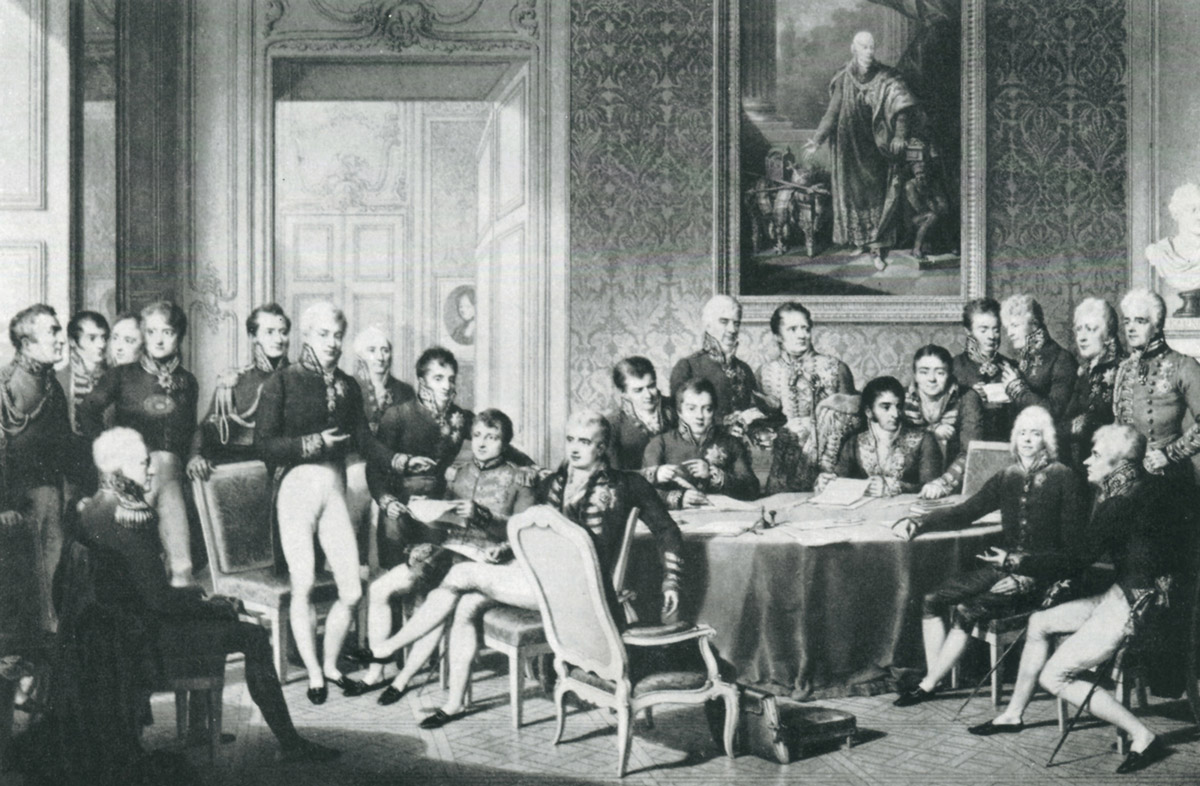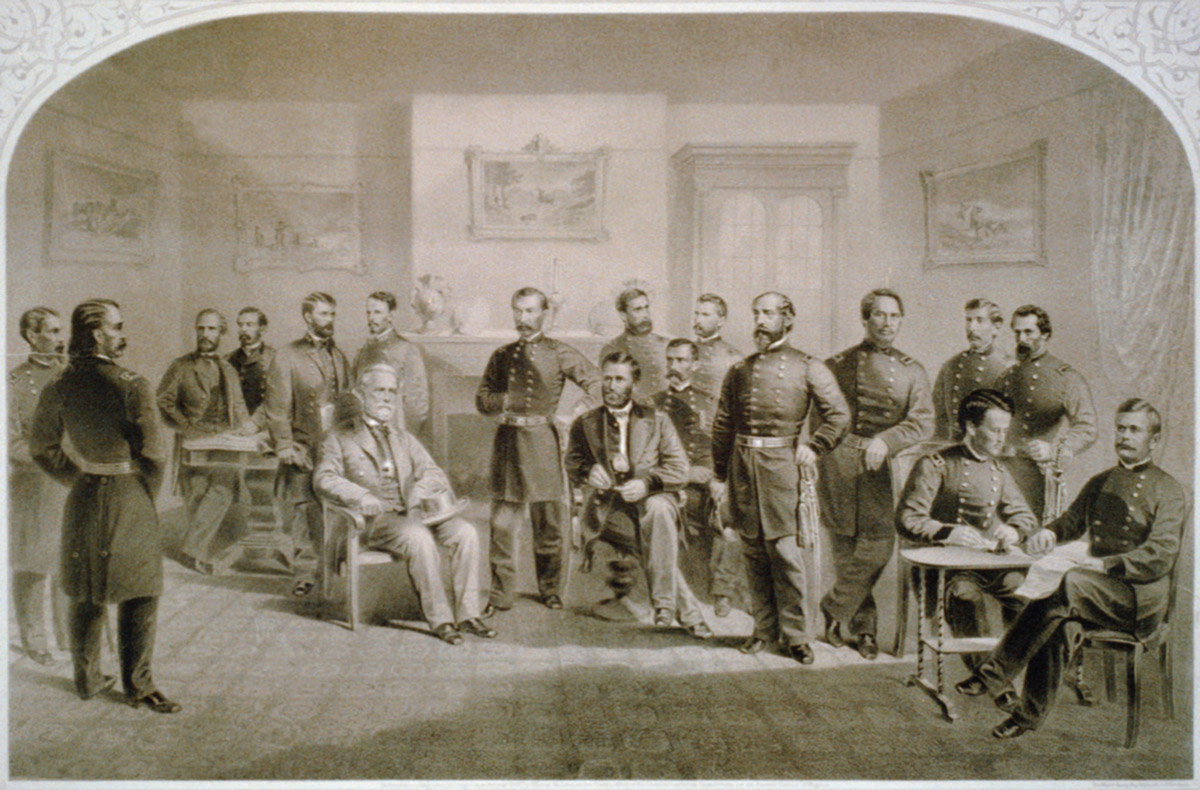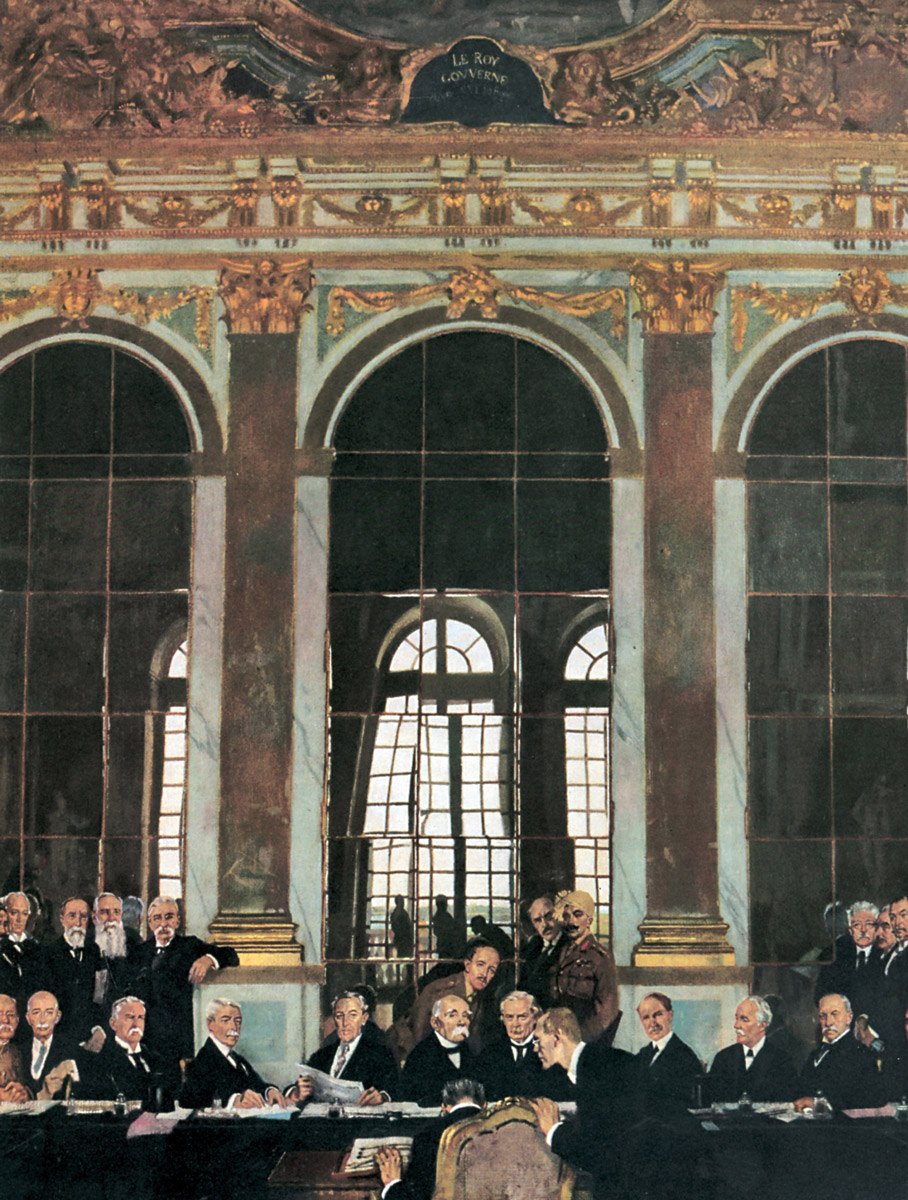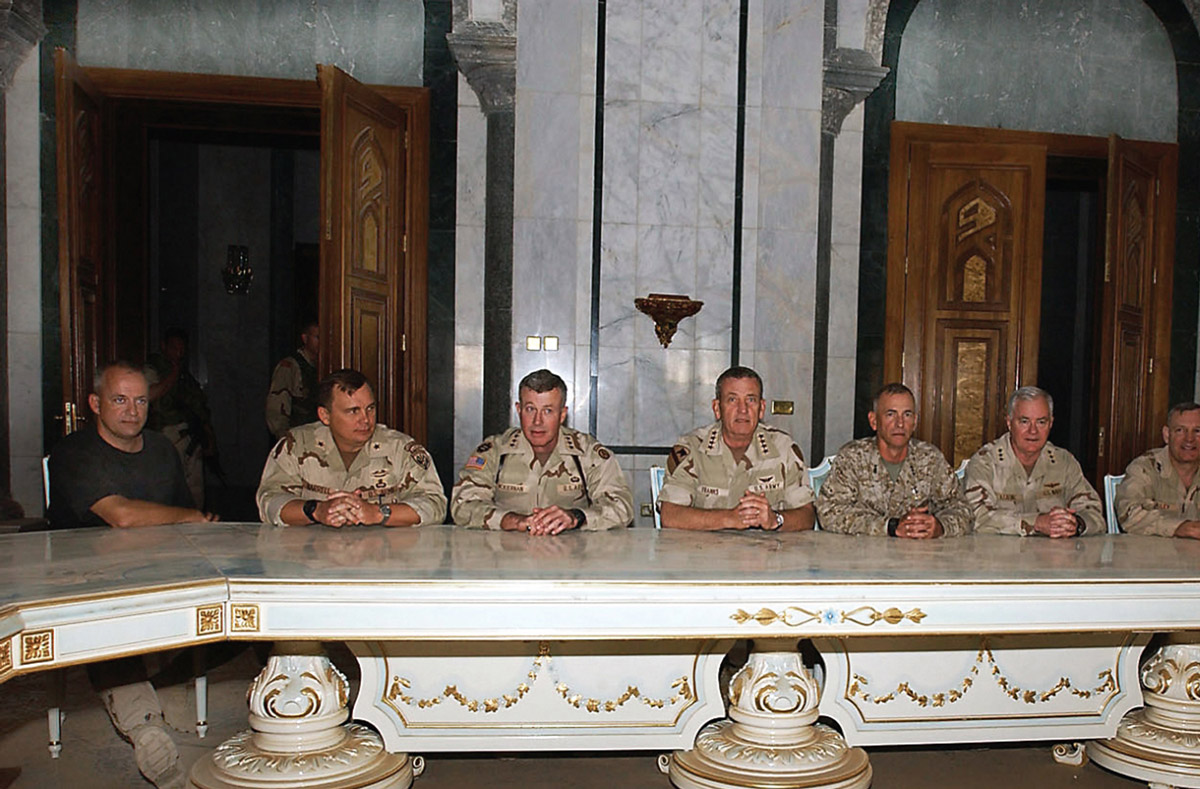The Losers: An Interview with Wolfgang Schivelbusch
Toward a philosophy of defeat
Sina Najafi, Jay Worthington, and Wolfgang Schivelbusch
The notion of ‘the Enemy’ implies conflict, and conflict implies winners and losers. Clearly, the victorious and the defeated have different outlooks, but how, precisely, are they different? To help answer this question, Cabinet turned to Wolfgang Schivelbusch, a cultural historian who has devoted considerable thought to the issue. His recent book, The Culture of Defeat: On National Trauma, Mourning, and Recovery (Metropolitan Books, 2003), explores the general problem of defeat through an examination of the experiences of the American South after the Civil War, of France after its defeat by Prussia in 1871, and of Germany after World War I. Cabinet editors Sina Najafi and Jay Worthington met with Schivelbusch to discuss his recent work.
Cabinet: What interests you about defeat?
Wolfgang Schivelbusch: I’m interested by the state of mind of the defeated; their conviction that the loser is, in terms of knowledge and insight, a step ahead of, or, rather, a half-turn further on the wheel of fortune than the victor. While John Keegan has argued that only victors can analyze the outcome of a conflict with a clear head, it seems that this clarity only holds in hindsight, and over the short term, and that the longer view often eludes the victor’s analysis. The loser knows what the winner does not yet even begin to suspect: that the triumph won’t last since the positions of victor and vanquished are in constant revolution. The loser thus casts himself as a figure of warning, whose claim to authority is that he speaks as yesterday’s winner. This cycle can be taken all the way back to the myth of Troy—whose fall is cast as both an end and a new beginning (i.e., Aeneas, the ancestor of Rome)—which is one of the many expressions of the ancient idea that war, death, and rebirth are cyclically linked.
Why did you choose these three moments of defeat, as opposed to, say, Russia in 1918, or Germany in 1945, for example?
The project was originally precipitated by the fall of the Berlin wall, and really by the defeat of the Soviet Bloc. I wanted to make a comparison between the GDR and the parallel story of the American South to find out how they illuminate each other. Then I decided that was too dualistic and too mechanical and I added France in 1871 and Germany in 1918, and the GDR became unnecessary. It became the invisible element that had precipitated the whole project, and it didn’t have to be mentioned. That was the study’s link to the present. There are also nice generational links among the actors of that period, almost an organic connection among the stories.
Such as Sheridan, the Union general and theorist of total war, who was drawing upon his American Civil War experience when he advised the Prussians in the war of 1870 to inflict more physical damage on French civilians?
Yes, exactly. That example is also very much counter to the current historical consciousness, in which Prussian militarism is the worst, and American surgical warfare is the best. When Sheridan wrote that “proper strategy consists in causing the inhabitants so much suffering that they must long for peace, and force the government to demand it,” he was an early voice in a strain of western military thought which still thrives today. It is difficult for Western liberals, well-meaning though they are, to digest that democracies—and in particular modern, liberal mass democracies—are much more bloodthirsty than any kind of militarism. Armies are the most conservative institutions you can imagine, and they are out to protect themselves, and they are not particularly interested—at least at the highest leadership levels—in bloodletting. In military terms, at least since Clausewitz, war is not destruction; war is defined as the imposition of one’s own will on the other, the enemy. And you achieve that through the least possible degree of physical destruction. In mass democracy, on the other hand, it’s all public opinion. It’s all fantasy, fear, and mechanisms to get rid of fear, which means mass destruction of the other side in order to feel protected. Public opinion demands bloodletting.
Democracy is a fundamentalism, and there’s no way out—pure democracy is pure fundamentalism, often in the dress of demagogy. This goes all the way back to Athens, and recurs throughout history. After the French Revolution, for example, French generals who followed the old rules of cabinet warfare—with its intricate codes of self-preserving military protocol among enemies—and surrendered their armies were routinely executed.
It seems that you can look at the Cold War as a period of limited war, fought by the great powers according to rules developed as a survival mechanism in the face of the atomic bomb. Over the past couple of years, however, with the Bush administration’s virtual abandonment of the rhetoric of limited warfare and its announcement of a doctrine of pre-emptive warfare, for example, does it seem as if total warfare has been making a comeback, or at least that some of the old limiting rules may be getting tossed aside?
I wonder whether the Cold War doesn’t fall into different phases. The rhetoric certainly wasn’t cool and professional—well, maybe it was towards the end, the last ten years or so. Before that, say in the first 20 or 30 years of the Cold War, there was a rhetoric of mutual extinction and fundamentalism, but the conflict was managed by the professionals, which would raise the question: maybe there is a professional cordon sanitaire that insulates the crazies from action. Or perhaps the Cold War simply looks different because it was the first total war to skip over the actual process of destruction on the battlefield and simply pitted the rival economies against each other directly. From the Marxist perspective, the economy had, of course, always played this role, if in a surreptitious, subterranean way, but the West’s victory in the Cold War was certainly the first to be achieved explicitly by the economy in its own name. Or, more properly, in the nom de guerre of the economy as tip-of-the-sword: globalization.
What do you make of the recent appearance in the US of metaphors of contamination that seem to closely parallel those deployed during the Cold War?
One tends to become hysterical when one is in the middle of a conflict. We cannot help who we are—we have a mechanism that feels hot and cold immediately, and then demands that we talk a lot about it, because we are, after all, members of a talking culture.
Would you describe the American constitutional subordination of the military sphere to the civilian in 1789 as a potentially dangerous innovation? That, in reality, democratic and pacifistic values aren’t always in concert, and that civilians don’t always restrain the military; rather, the restraining relationship often operates in the other direction?
Well, yes, though the founding fathers were not democrats in the modern sense, but were actually rather cautious members of the elite, who were very much afraid of the masses. So, the question is based upon a misunderstanding of using the same words. I think democracy in the US—as opposed to the French Revolution—did not play a role at all. Maybe democracy was even a bad word in the 1770s and 80s, and only with Andrew Jackson in does it really enter the picture.
Looking at the relationship between democracy and defeat—and between democracies and the defeated—it seems remarkable that The Persians, the first extant play from the Greeks, examines conflict from the perspective of the Persian side, the losing side. So, very early on we have this attempt on the part of the Greeks to try to understand the experience of defeat. In terms of your book, and the kind of analytic gap that you think that it fills, were there other analyses that are precursors to your analysis of defeat?
There was one that was almost my starting point, a lengthy essay by historian Reinhard Koselleck. The idea behind the essay is that the historians on the losing side, having been members of a culture that had planned otherwise and then experienced things turning out differently than it had hoped, are more open to seeing unforeseen causes as decisive ones and are therefore also more prone to learn. Whereas historians of victorious cultures tend to see confirmation of their plans, and that broadens—far beyond mere professional historians—into the relative ability or inability, born of victory, of a culture to adapt to unforeseen conditions.

So, we have historians who are on the side of the victors, another set on the side of the vanquished, and then there’s a third group you talk about—historians who are on the side of the victors but act as if they’re on the losing side. Nietzsche is an example you offer. What’s the relationship there?
Nietzsche is an interesting example. You could make an analogy to Chomsky or Sontag, the rare examples of American intellectuals who feel that there’s something very, very wrong here, in a spirit similar to that of Nietzsche who saw the victory of 1870 as a terrible defeat for Prussian liberalism and German Kultur.
What about the French after their victory in 1918? You don’t seem to locate them in the same position as the other victors in your book.
No. It wasn’t a victory in the same sense.
The French didn’t really even seem to have a rhetoric of victory.
A very hollow and thin one, maybe. It reminds me of when the Iran hostages came back and got a victory parade down Broadway. You declare something so, and then you whistle in the dark and hope that nobody listens.
What are the common elements in the experience of defeat?
Well, every society does experience defeat in its own way. But, the varieties of response within vanquished nations—whether psychological, cultural, or political—do conform to a recognizable set of patterns or archetypes that recur across time and national boundaries.
A state of unreality—or dreamland—is invariably the first of these. The deep and widespread depression caused by lost wars in the modern age of nationalism is as obvious as the joyous public celebrations of victorious ones. It is all the more surprising, then, how briefly the losing nation’s depression tends to last before turning to a unique type of euphoria. The source of this transformation is usually an internal revolution following military collapse. The overthrow of the old regime and its subsequent scapegoating for the nation’s defeat are experienced as a kind of victory—and, for a moment, the external enemy is no longer an adversary but something of an ally, with whose help the previous regime has been driven from power. Of course, this feeling tends to pass, with a sentiment like ‘The victor has freed us from despotism, for which we are very grateful, but now it’s time for him to go.’ Should the victor turn out not to be content with this role—and victors almost never are—the mood shifts dramatically, of course. The terrain becomes cleared for the production of myths of the unworthiness of the victorious enemy, of the cultural superiority of the defeated, and of revenge and renewal, for example.

Can you give us some examples of the products of that defeated myth-making?
Well, at its most primitive, it manifests itself in the opposition of vanquished culture to victorious barbarism. The popular images of the Yankee in the American South, of the Prussian German in France in 1870, of the post-1918 Afro-French occupiers in the Rhineland, all conform to the negative stereotype of the “savage.” In the myths generated at all three of those moments, the image is similar: the hulking savage—with his animalistic physique, searing glare, coal-black beard, and weapon bared in his hand—threatening women and children, who nonetheless lead him around by the nose thanks to their superior intelligence, courage, and wit.
Also, defeat can be transformed into internal victory through these myths. To see victory as a curse and defeat as a moral purification and salvation—a common move in the myths of these defeated cultures—is to combine the ancient idea of hubris with the Christian virtue of humility, catharsis with apocalypse. To see one’s own father-ruler overpowered by another is invariably a source of satisfaction. Indeed, the sons’ vision of liberating the mother-nation—a stage of the dreamland state—transforms the fathers’ defeat into the sons’ own victory.
What relationships do these successor states, the products of defeat, bear to their predecessors and the states that defeated them?
In this rebirth of the state through defeat, old allegiances can be cast aside, and losers are free to learn from the victors. It is astonishing how easily the goals and agendas for which nations go to war are forgotten. In the post-1865 American South, no serious resistance was mounted to the abolition of slavery. No one in post-1871 France voiced any further desire to advance the Franco-German border to the Rhine or expressed any yearning for continental hegemony. Likewise, post-1918 Germany abandoned its Weltmacht aspirations and dismissed the construction of a fleet to rival England’s as an unfortunate idiosyncrasy of Emperor Wilhelm II’s.
The defeated state is free to take on new attachments. Losers imitate winners, and seek to join their ranks, almost by reflex, as shown by the New South’s emulation of the Yankee model, the reforms of the French army and educational system along Prussian-German lines, or the imitation of America by Germany after 1918 and 1945. France experienced its greatest waves of Anglomania after its defeats in the Seven Years War and at Waterloo. And even as the French Republic conquered one part of Germany after another during the 1790s, German patriots and Francophobes like Ernst Moritz Arndt called on their nation to learn from the republican institutions and virtues of France. This borrowing is of course a complex, multivalent process. The only superiority that “borrowing” societies grant their “creditors” is that of greater material progress and modernity, above all in technology and organization. The borrower is not interested in the soul, the spirit, or the cultural identity of the creditor nation, and the borrowing itself is seen as nothing more than a useful means towards the spiritual and cultural regeneration of the defeated.

That suggests a continued faith by the vanquished in their own superiority—lacking only perhaps in some technical skills—even in the face of failure. What role does propaganda play in maintaining that faith, and does the experience of defeat ultimately make unsustainable the production of a seamless propaganda for the defeated?
In general, the official defeated discourse is as propagandistic and one-dimensional as the victorious one, at least in its initial expressions. The propaganda part of it can itself become split, though, and become a creative force through its different directions. Romanticizing of defeat can become much more powerful than any romanticizing of victory. This crude propaganda branch of the response of the defeated, the explaining away of the defeat, can mobilize a lot of fantasies, and the transition from that kind of official state-sponsored, apologetic propaganda into real productive responses has more territory and nutrition to become active on a very wide front.
Success, on the other hand, is a very lonely position—it only concerns those who have it and the immediate sycophants who want to participate in it, and everything else falls apart after that. After any victory, the victorious party does not know what to do, other than to distribute the spoils.
If the rhetoric of defeated cultures is distinguished from the victors’ by its inevitable multivalence, what is the relation between the defeated nation’s propaganda and the more complex thought, philosophy perhaps, that can arise from defeat?
You have propaganda as opposed to philosophy, I would simply say… it’s a scale that is pretty continuous, from the one-dimensional to philosophy.
But the propaganda doesn’t work. Is that why people turn to philosophy?
People don’t turn to philosophizing—it’s kept in a chamber. It’s chamber music, only taking place in certain specific circles.
But the circles seem at times to include the mass media, like newspapers, for example. The quotes you have in your book of contemporary analyses of national defeat aren’t just from philosophy books.
Not philosophy books, but philosophers talking, like Chomsky is talking, the Nietzsche type of commentator.
So even in the mass media, it’s esoteric in some sense.
Yes, and I’m not even sure I’d call it mass media at all. Perhaps fringe mass media would be more appropriate.
As societies develop more efficient mass media, and political masses who can more efficiently process military events, do they become capable of responding more quickly as societies to defeat and to victory? You write about how the Franco-Prussian War was decided militarily in the opening weeks, but French society required months of additional fighting and the siege and fall of Paris before it could truly digest the results. Is that something you see as inherent to democratic political bodies, that certain rituals simply require time and effort, or is it a function of the efficiency of the mass media at that particular moment?
My hunch is that certain processes, in order to be authentic, or organic, do need time, and cannot be outwitted by quick fixes. And the media are quick fixes in this sense, I would think.
So the social body has a certain pace it demands, regardless of how quickly technology can pour information into it?
Yes. Though if we think of the impact of blood spilled, the mass media today can make the impact of 100 soldiers killed become as weighty as 10,000 were 50 years ago. Though it is like living off vitamin pills instead of real food. At the level of chemistry, it doesn’t work. So if you look at what’s brewing in Afghanistan and Iraq, every day can be made into a full-fledged drama, but at the same time, inflation sets in, and you do not have real milestones any longer.
So what dramas survive contemporary coverage of these conflicts?
Well, if I may mention a personal experience I had at the end of April, after the American conquest of Baghdad, when the Op-Ed editor of the New York Times asked me to write a piece on the victors. Their editing was quite sophisticated, so I had no objection to make. In the meantime, however, I do miss the sentence they edited out. It refers to the disappearance of the Iraqi army and goes like this: “History may still have one irony in store. It may well be that instead of the ever more elusive idea of a cache of weapons of mass-destruction—on behalf of which the war was started—the real danger for America may turn out to be the army that presumably vanished into nowhere, but possibly into the underground.”

Wolfgang Schivelbusch is a cultural historian based in New York and Berlin.
Sina Najafi is editor-in-chief of Cabinet.
Jay Worthington is an associate at Paul Hastings and (until moments ago) an editor at Cabinet. He was also a co-founder of Clubbed Thumb in New York City.
Spotted an error? Email us at corrections at cabinetmagazine dot org.
If you’ve enjoyed the free articles that we offer on our site, please consider subscribing to our nonprofit magazine. You get twelve online issues and unlimited access to all our archives.